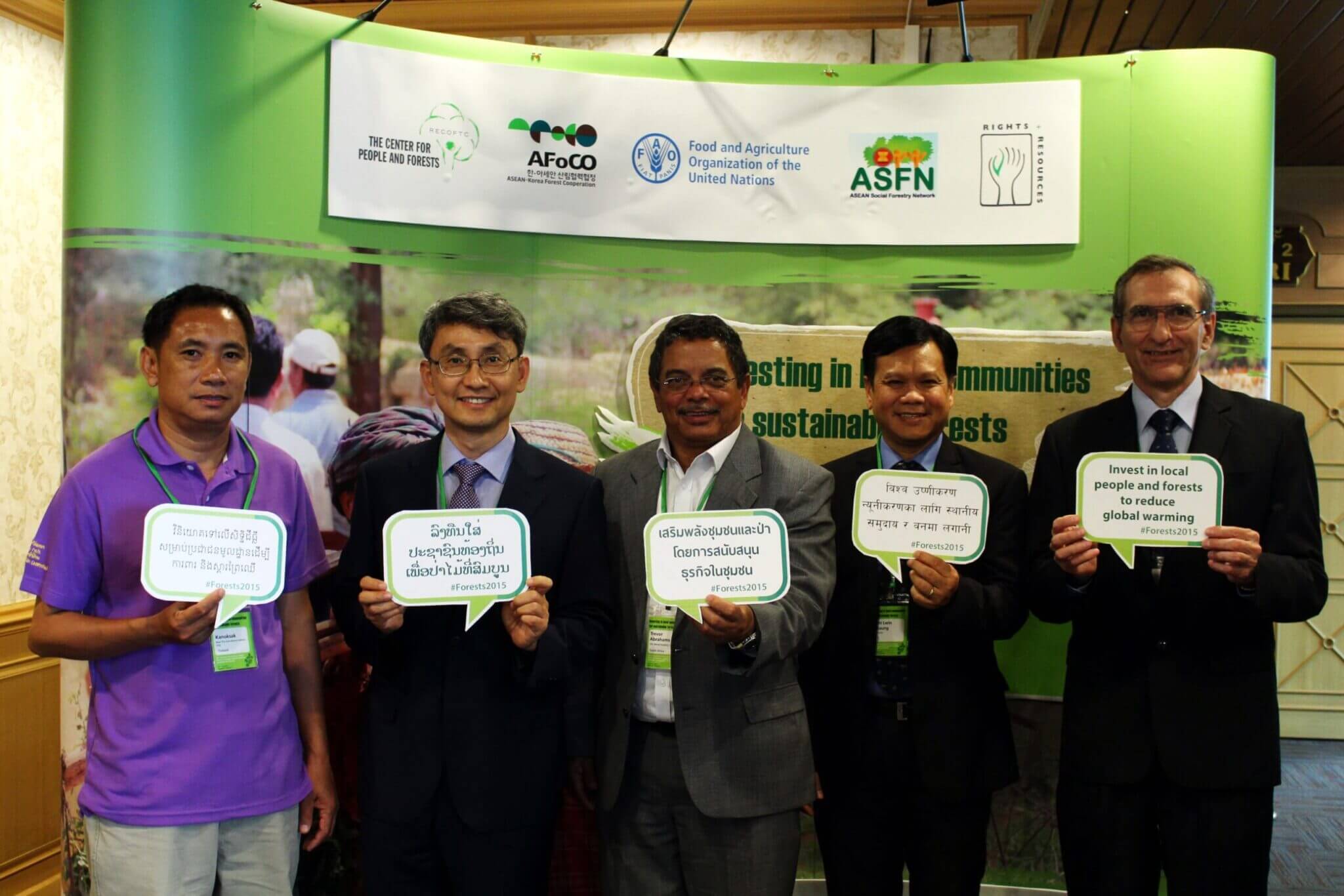Community forest members, indigenous peoples and smallholders from Asia’s forests gathered in Bangkok today for The pre-World Forestry Congress regional meeting on people and forests: Investing in local communities for sustainable forests. The regional meeting will ensure that local community voices are heard at the upcoming XIV World Forestry Congress, the largest and most significant gathering of the world’s forestry sector, set to take place in Durban, South Africa in September 2015.
Photo from left to right: Mr.Kanoksak Duangkaewroen, Chief Executive of the Mae Tha Sub District. Administrative Organization, Dr.Dong Geun Han, Project Director of Center for Consulting &Project Management, Institute for International Development Cooperation, Mr.Trevor Abrahams, Secretary General, XIV World Forestry Congress, Dr.Tint Lwin Thaung, Executive Director, RECOFTC and Mr.Patrick Durst, Senior Forestry Officer, FAO Regional Office for Asia and the Pacific
Background on people and forests in Asia – Investing in social and human capital is an essential part of investing in natural capital and ensuring a sustainable future: More than 450 million people in Asia and the Pacific are dependent on forests for part of their livelihoods – for food, fuel, fodder and other forest products – as well as for environmental services such as water and microclimate regulation, biodiversity and cultural conservation. Despite many positive developments, these forests are still subject to wide-scale degradation and conversion, and are becoming fragmented within increasingly diverse and intensively used landscapes. This often creates negative impacts for local people, particularly the poor and excluded, as well as on national and global issues such as climate change.
It is thus essential to enable the rural poor to convert natural capital to other forms of capital in a sustainable way. Empowering local communities by investing in tenure rights and appropriate regulatory and supporting frameworks to achieve sustainable forest management is essential.
Community forestry and related community-based forest landscape management has proven to be an effective approach for reducing forest loss and degradation and improving forest conservation and restoration. It is a powerful approach for improving the rights, governance and fairer access to benefits of local people and smallholders and consequently, their livelihoods and food security. There is increasing national policy support for this approach in many forested countries in the Asia and the Pacific region, and growing interest in more sustainable forest management by national entities and international agencies. For more information, see www.recoftc.org.
This event is organized by RECOFTC and its partners: ASEAN-Korea Forest Cooperation (AFoCO), ASEAN Social Forestry Network (ASFN), the Food and Agriculture Organization of the United Nations (FAO) and Rights and Resources Initiative (RRI) with support from Norwegian Agency for Development Cooperation (Norad), Swedish International Development Cooperation Agency (Sida) and Swiss Agency for Development and Cooperation (SDC).
For more information on The pre-World Forestry Congress regional meeting on people and forests: Investing in local communities for sustainable forests, see recoftc.org/events/investing-local-communities-sustainable-forests
For more information on The XIV World Forestry Congress, see fao.org/about/meetings/world-forestry-congress/en/






























